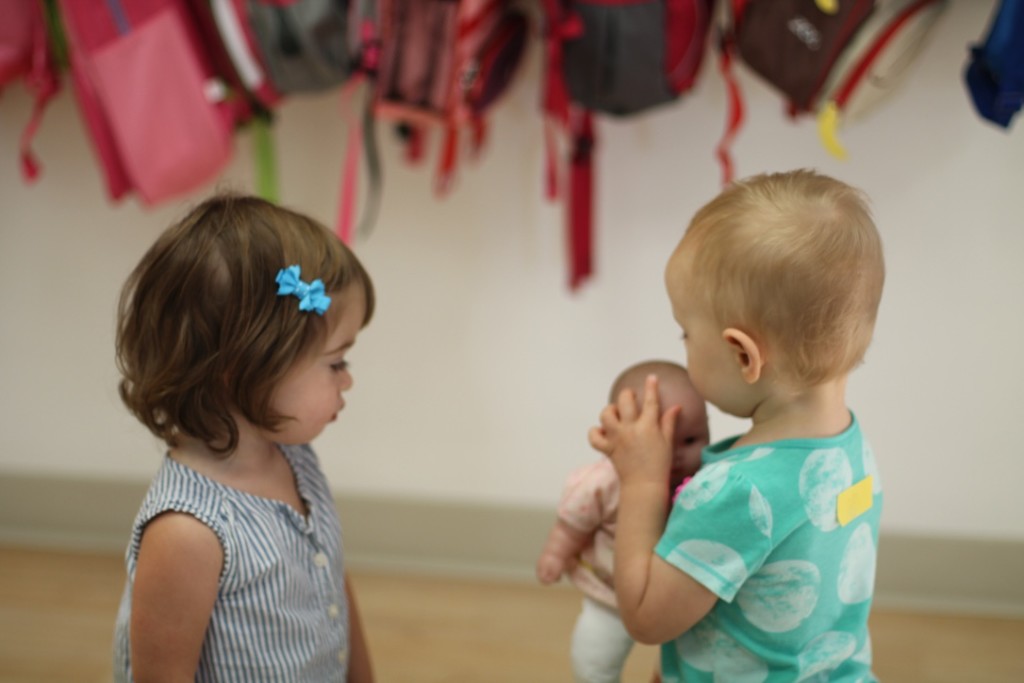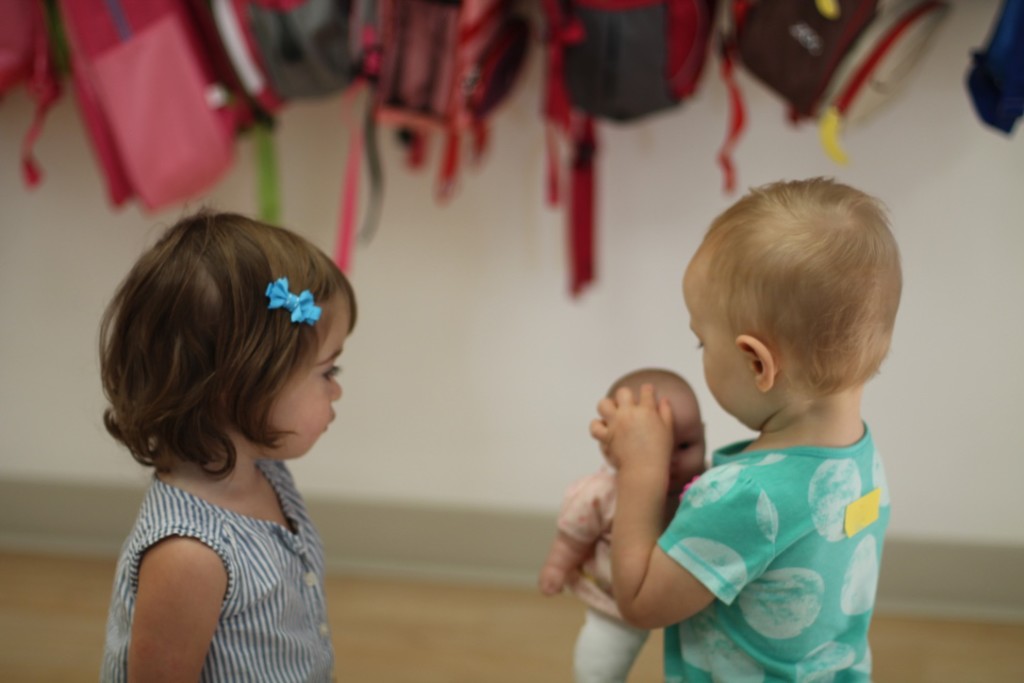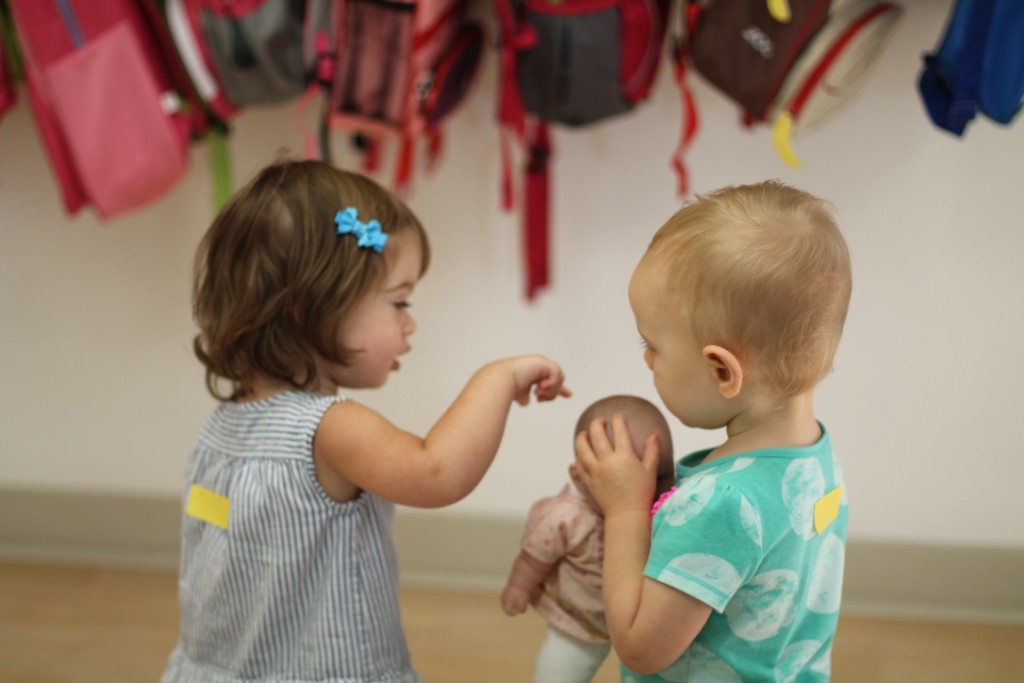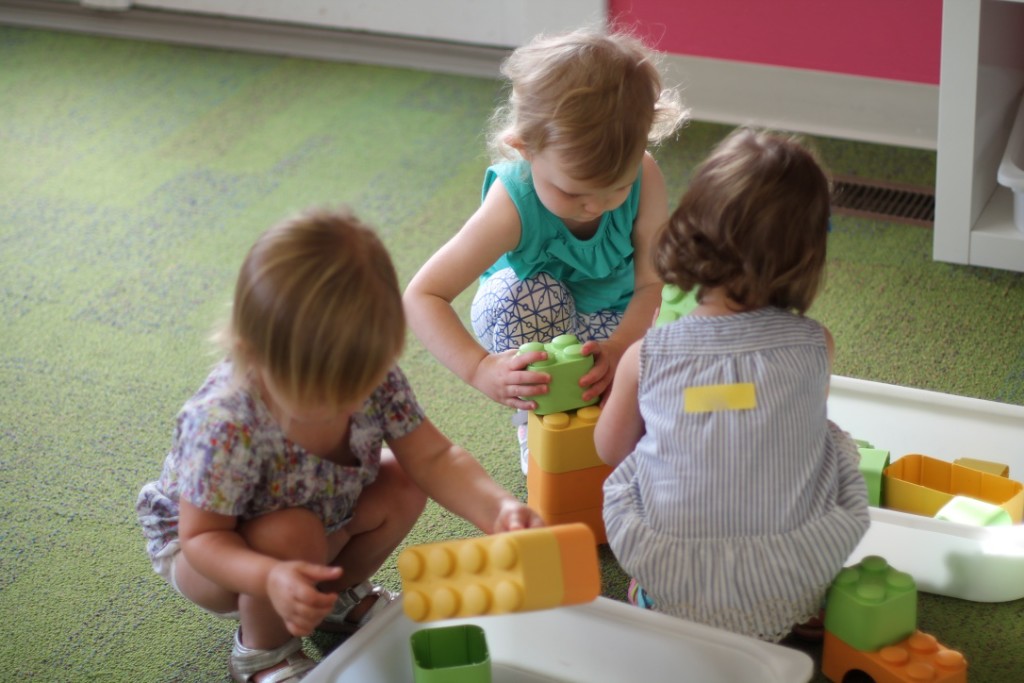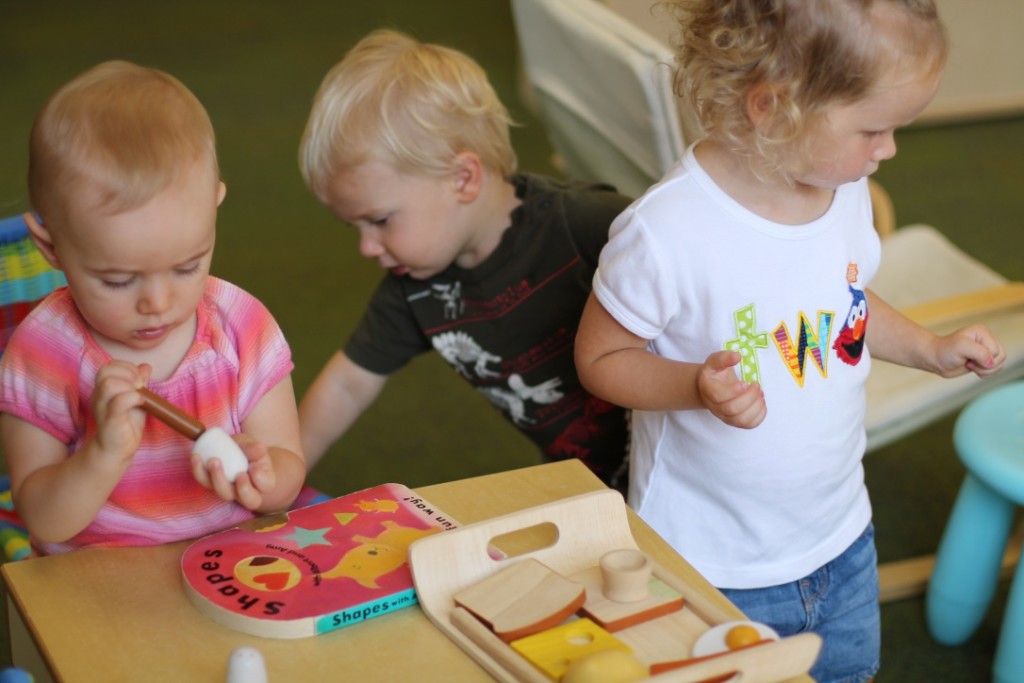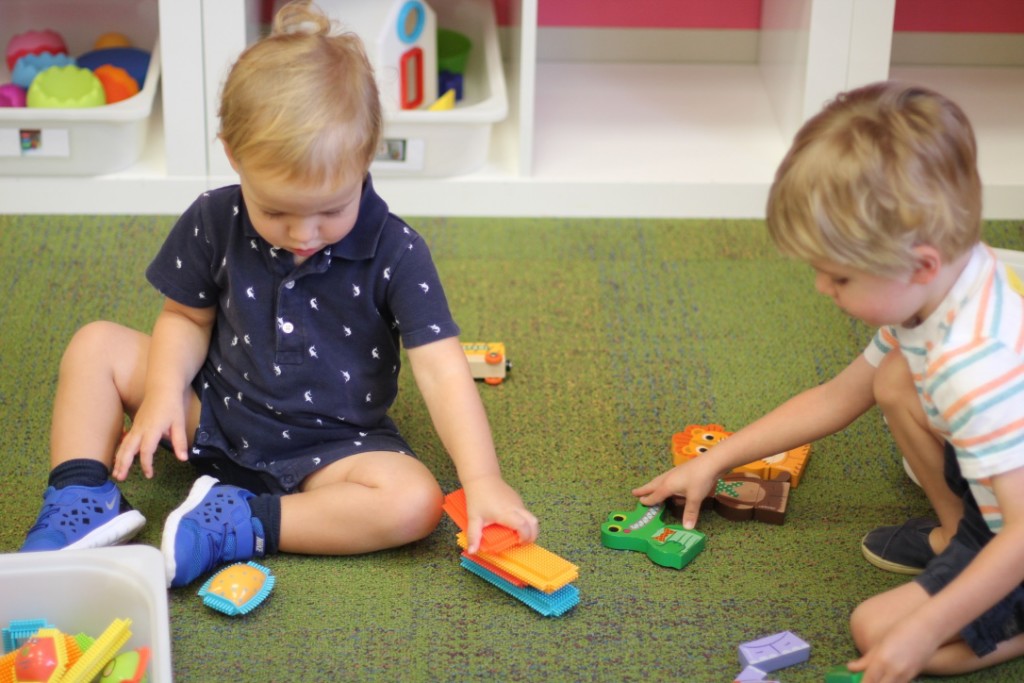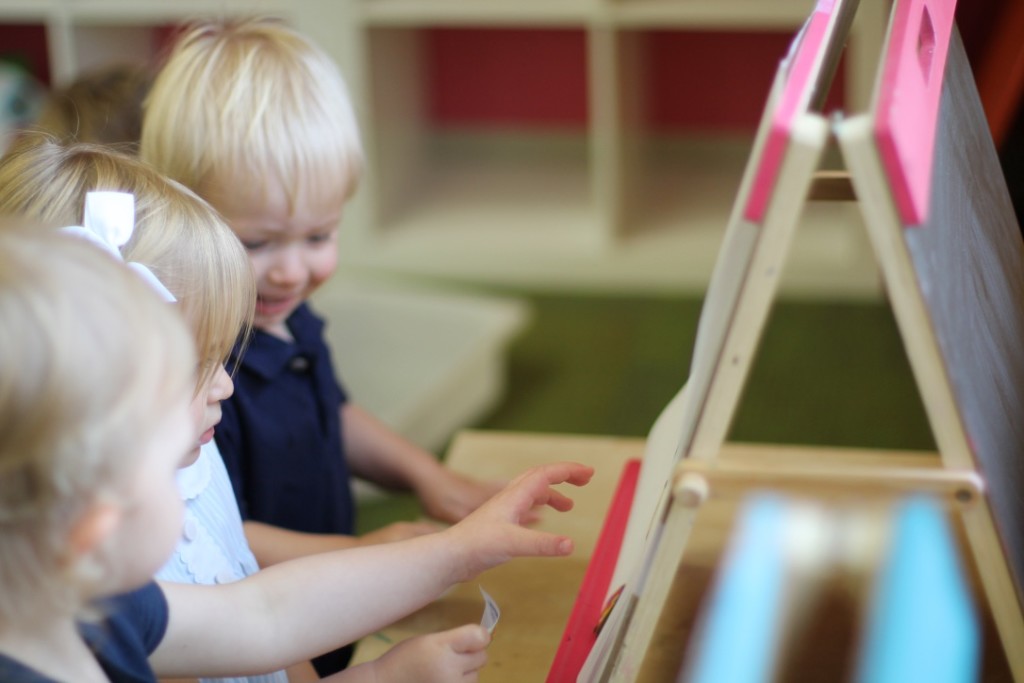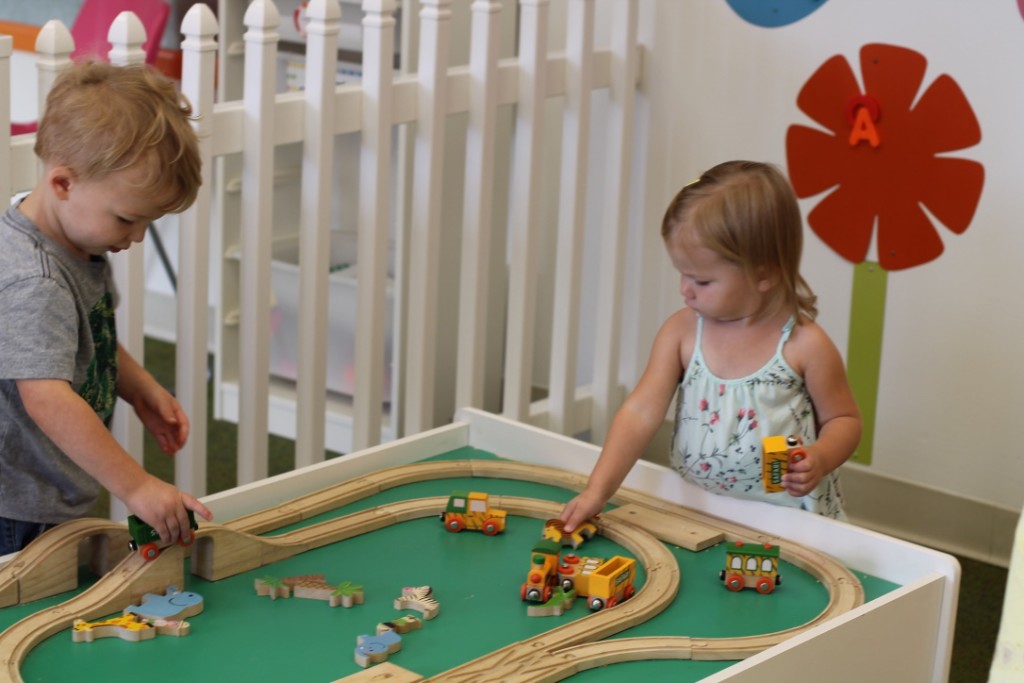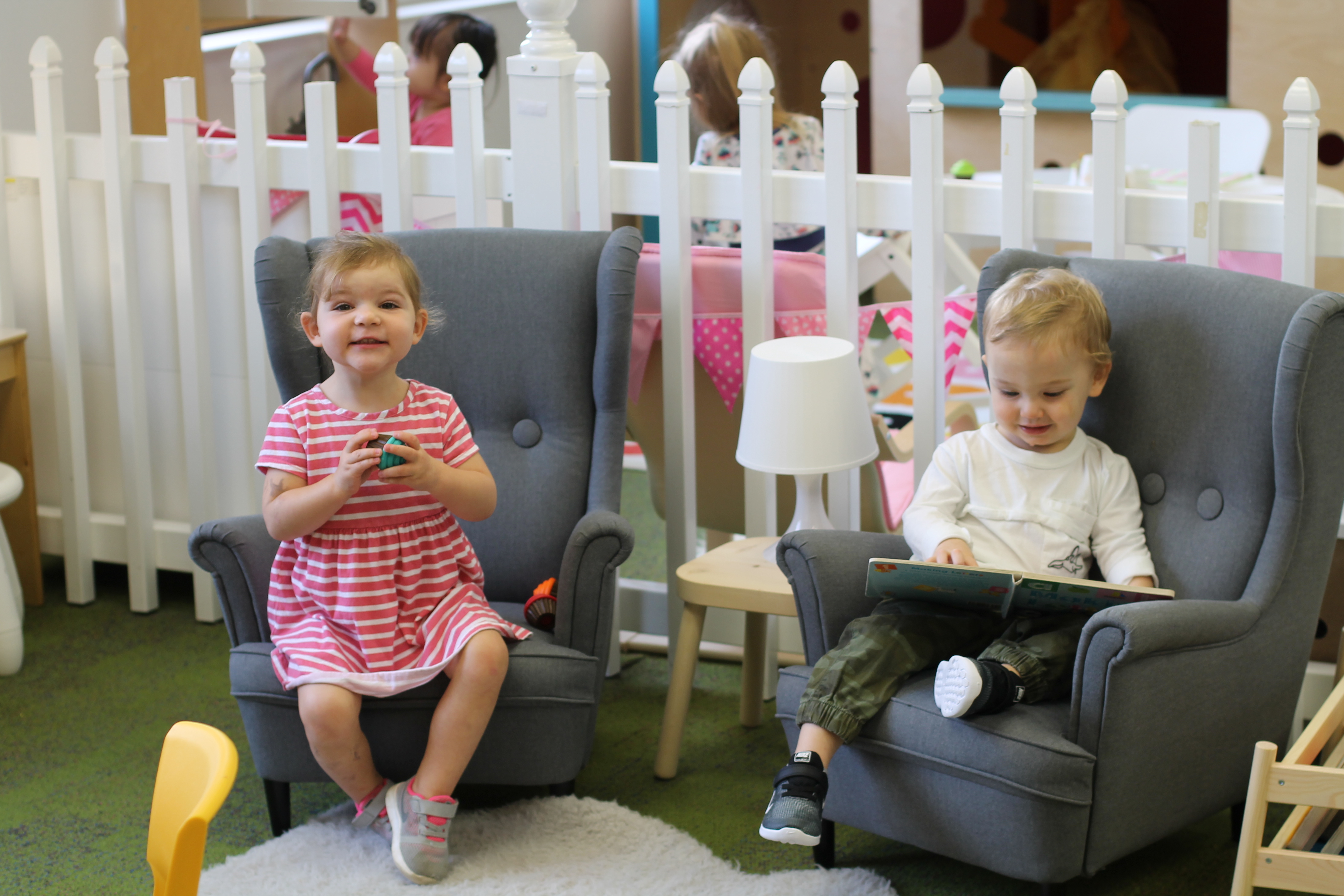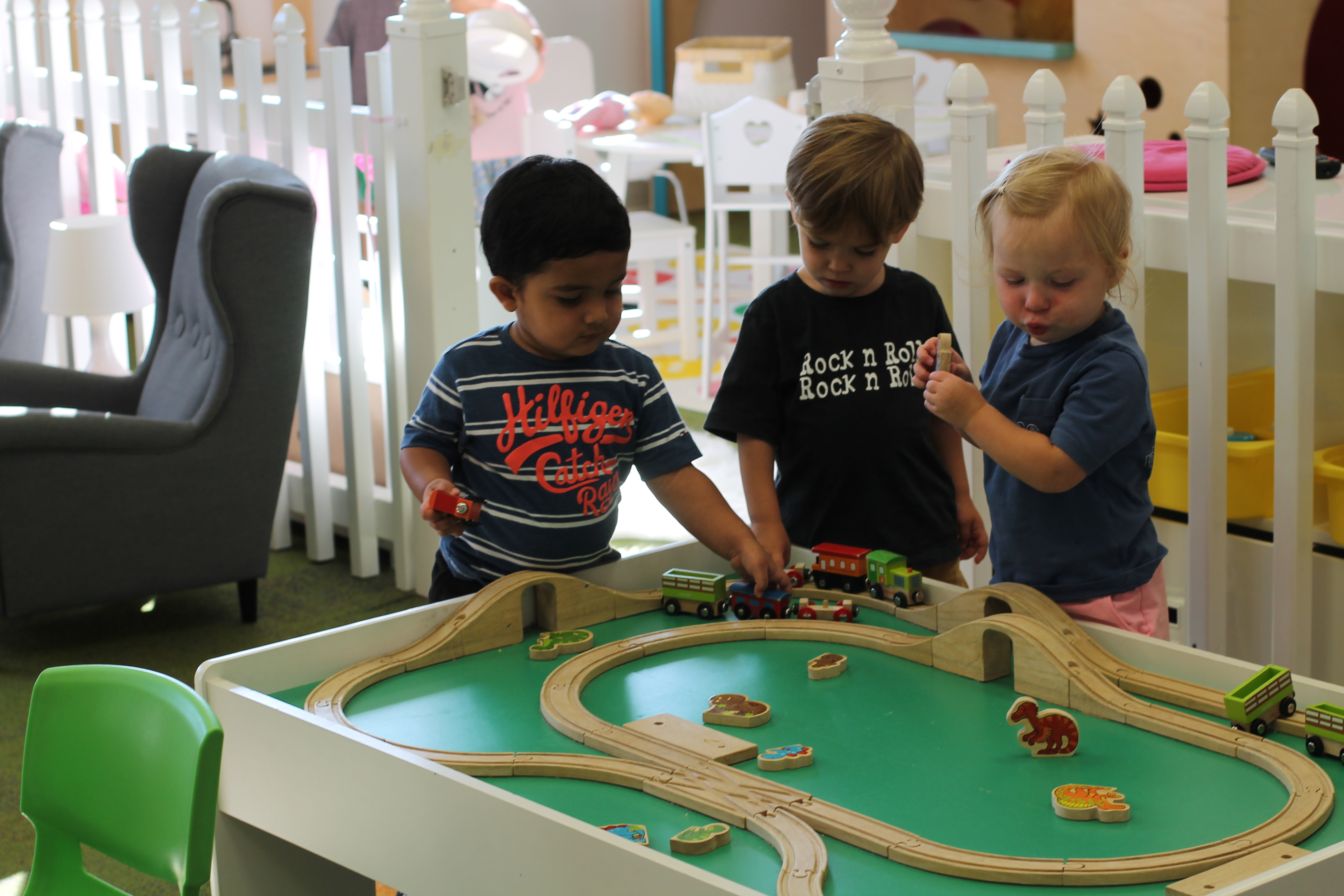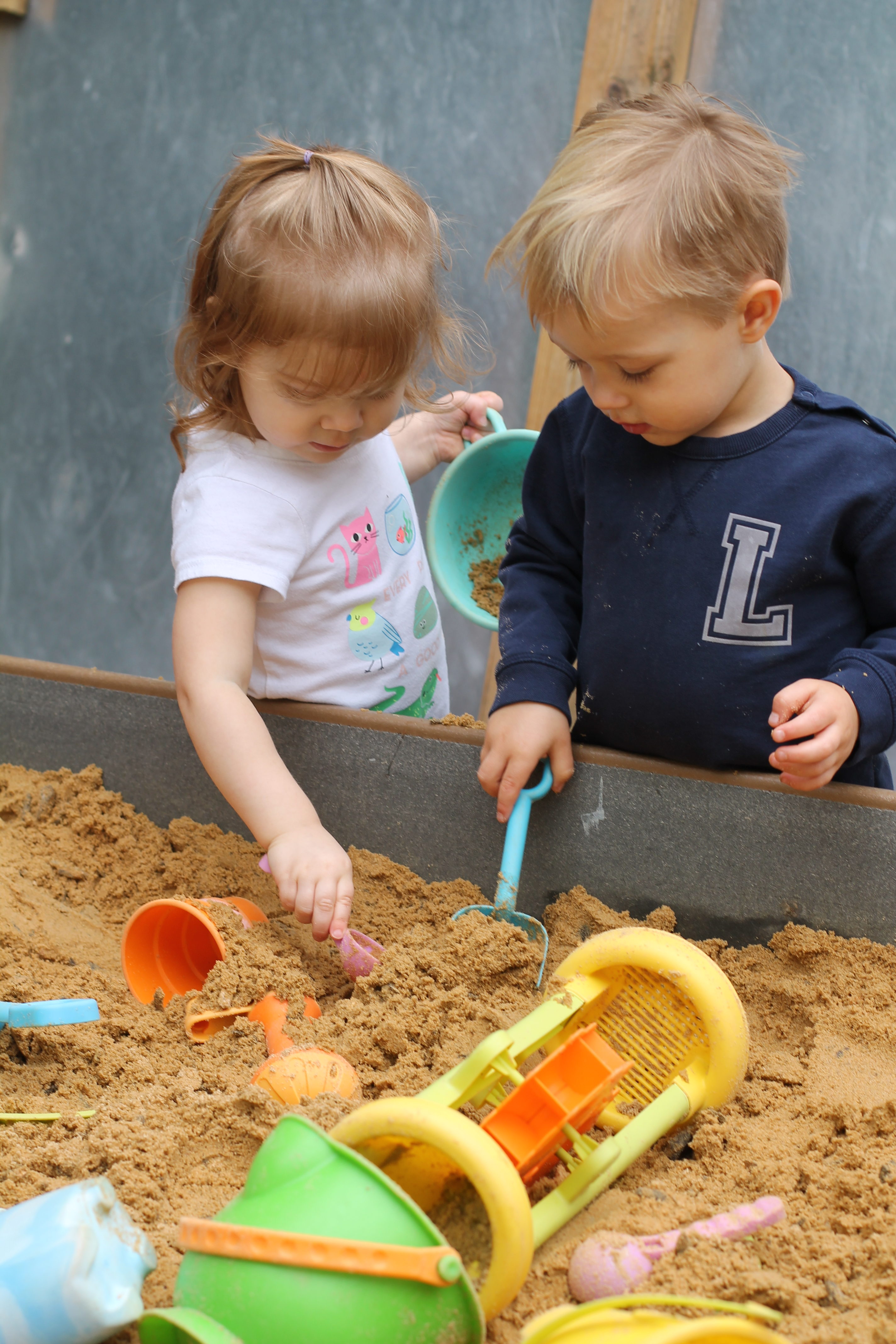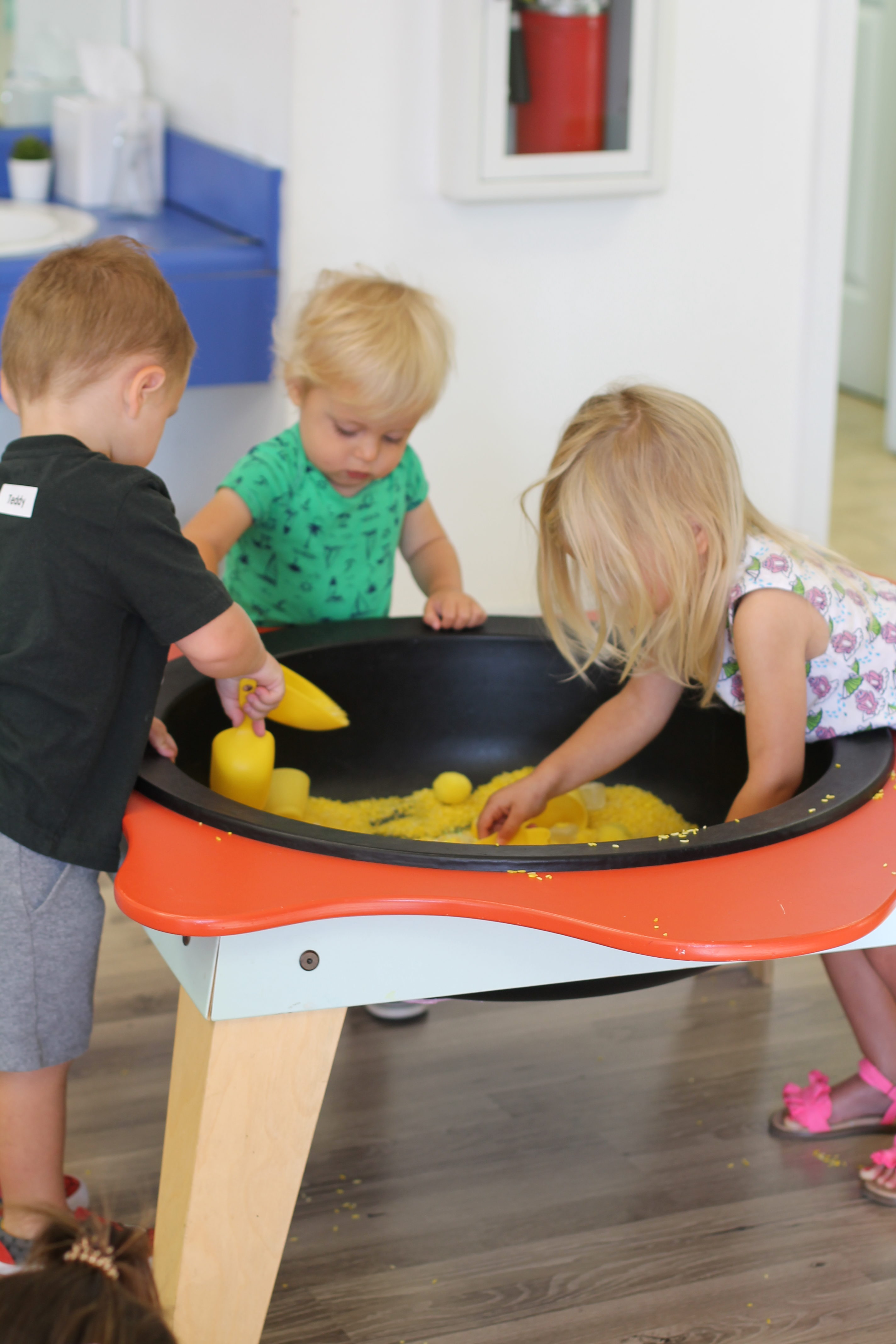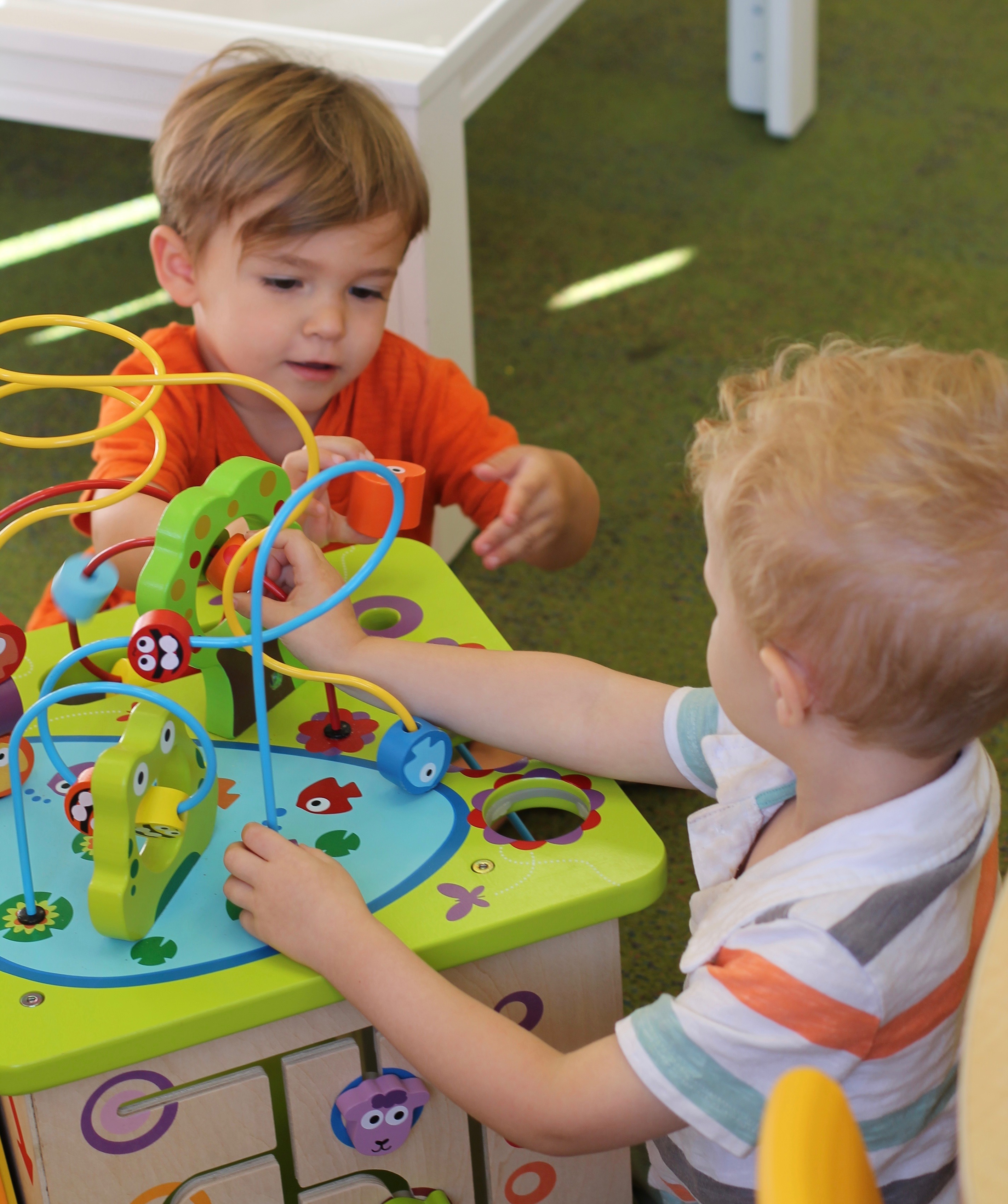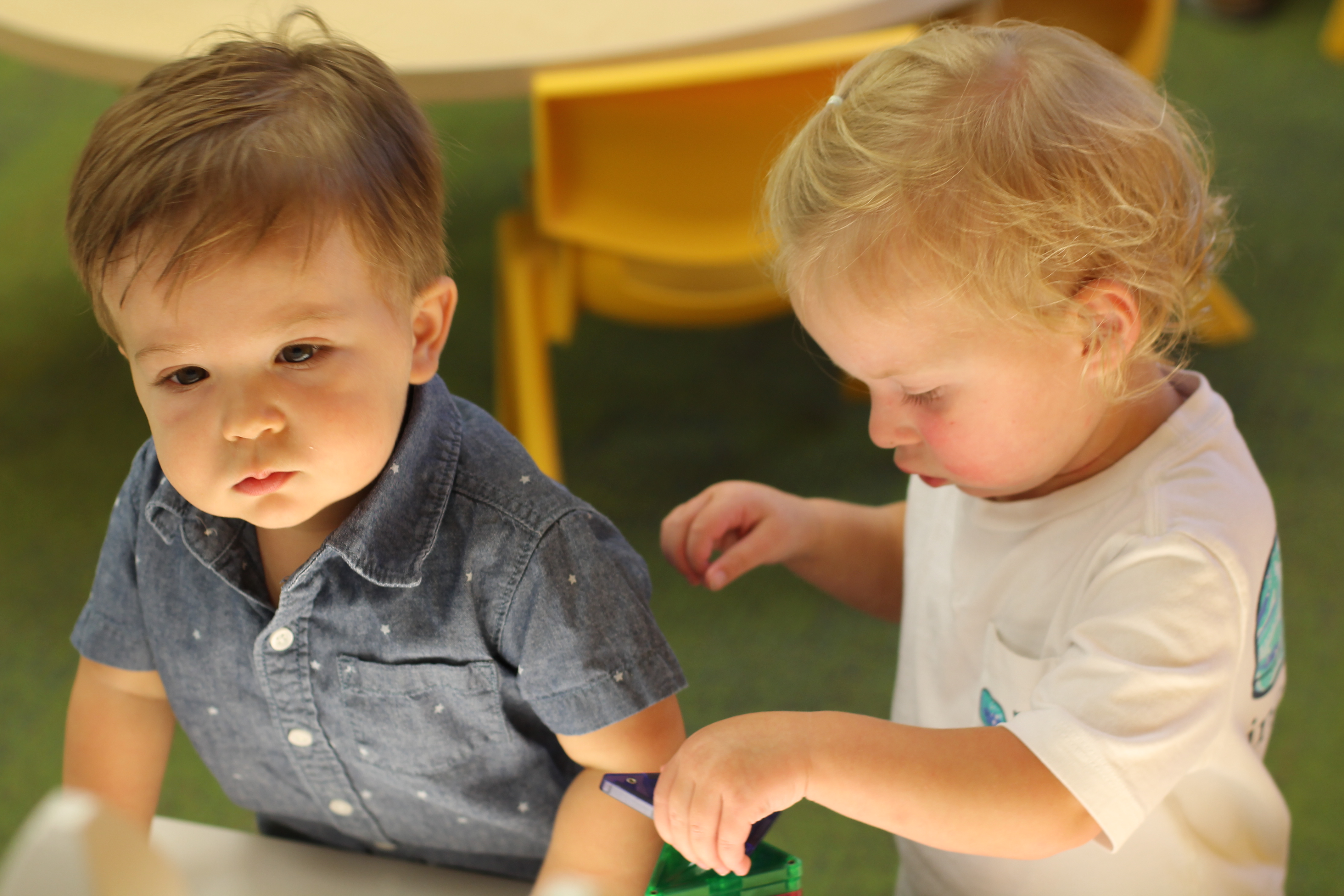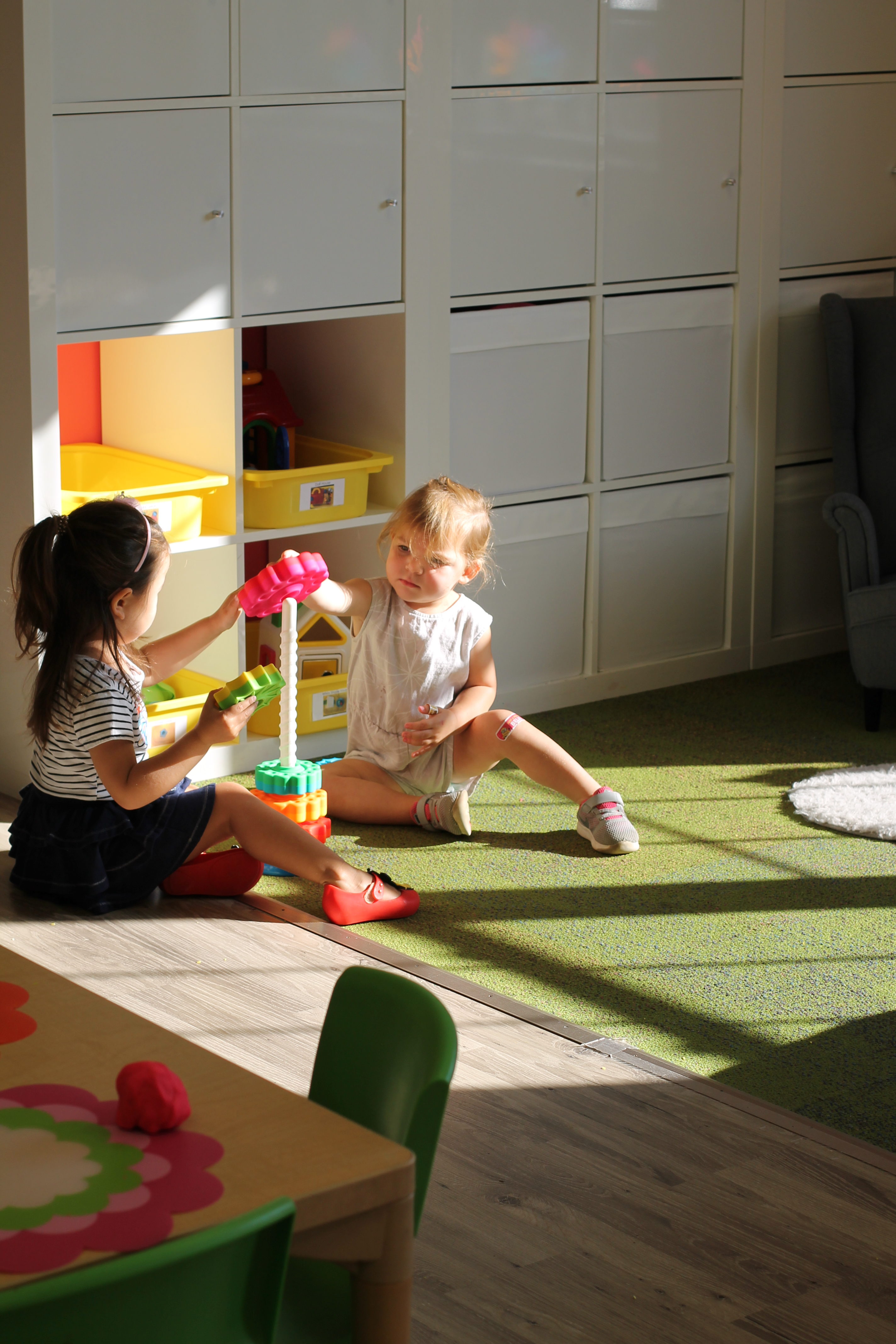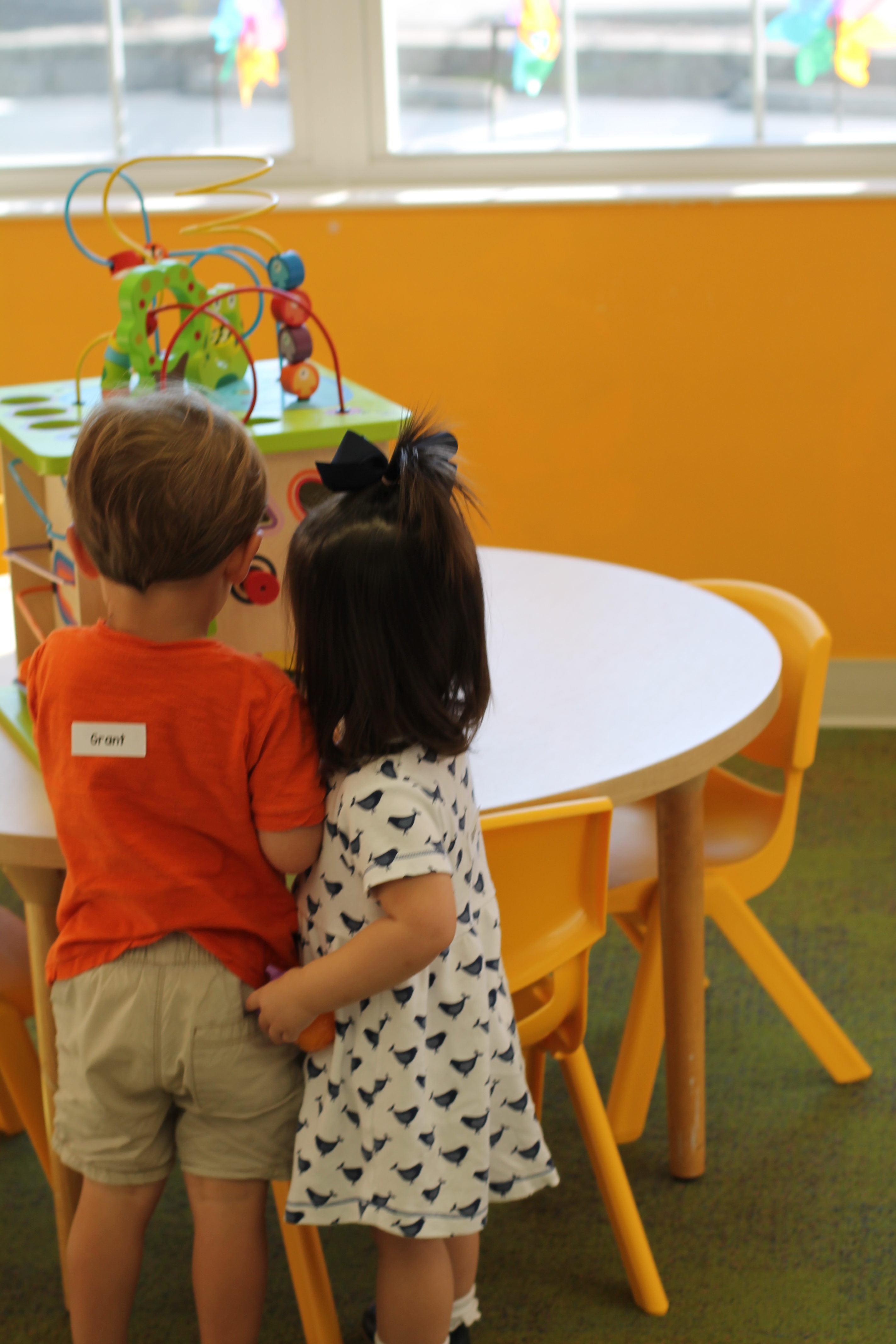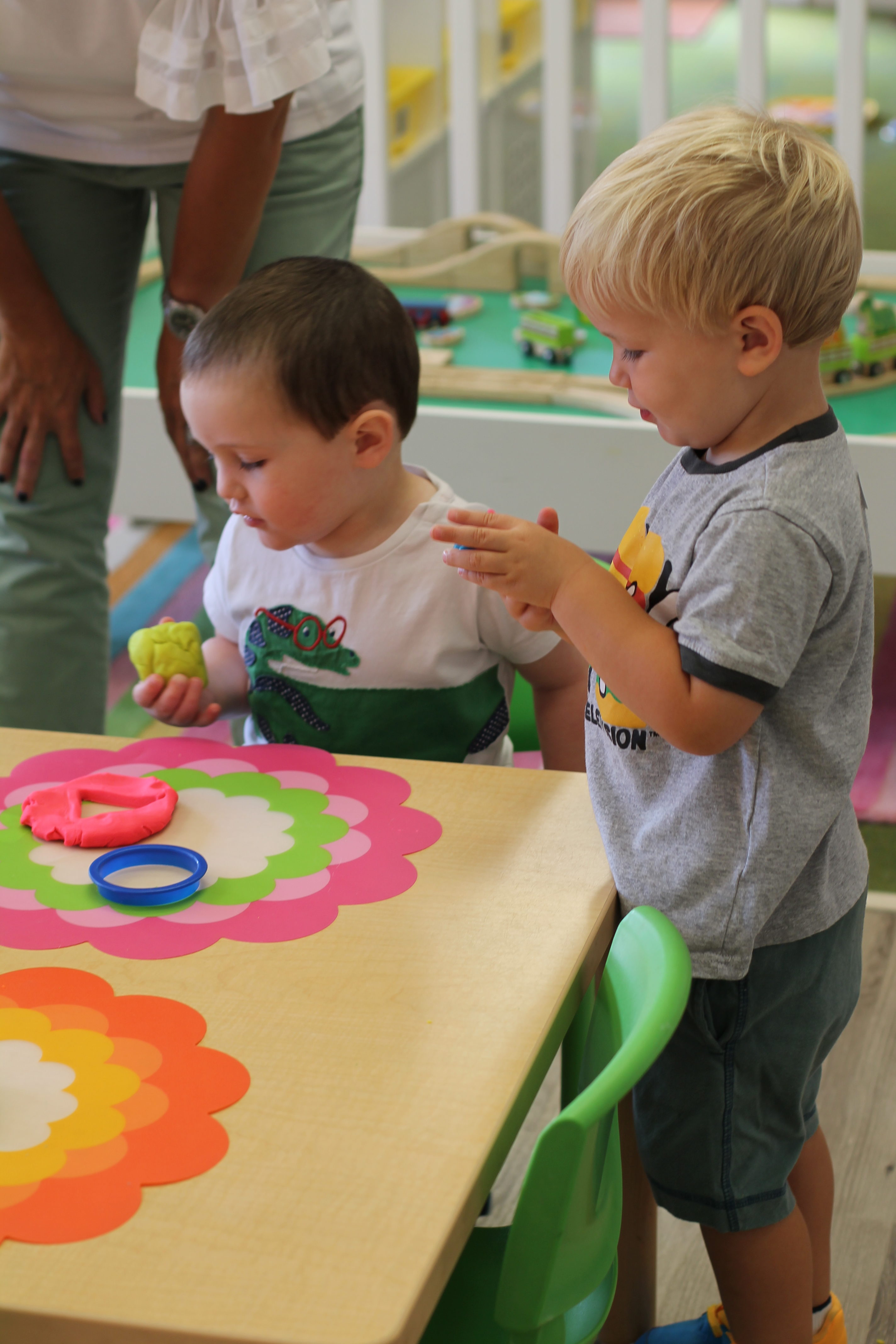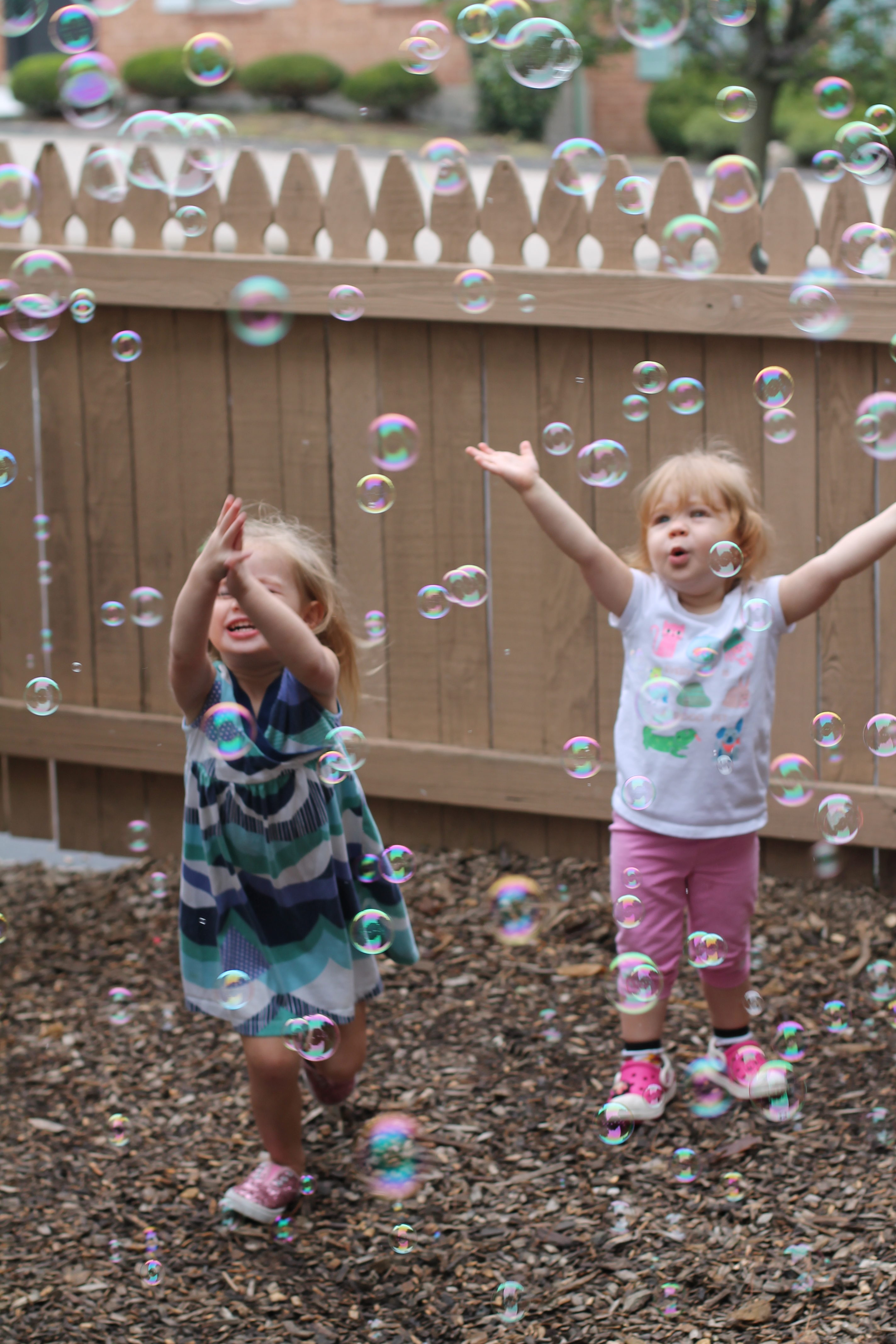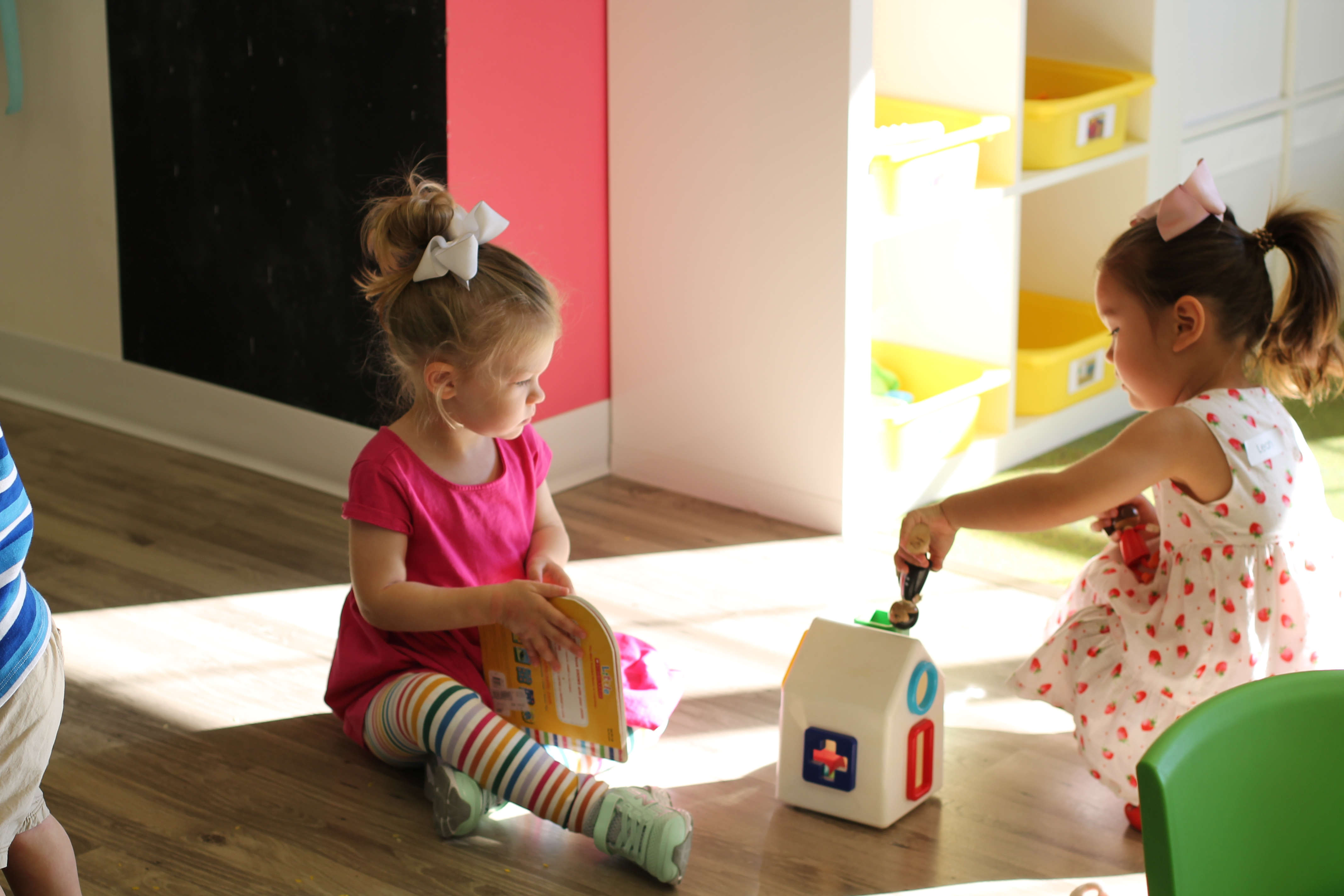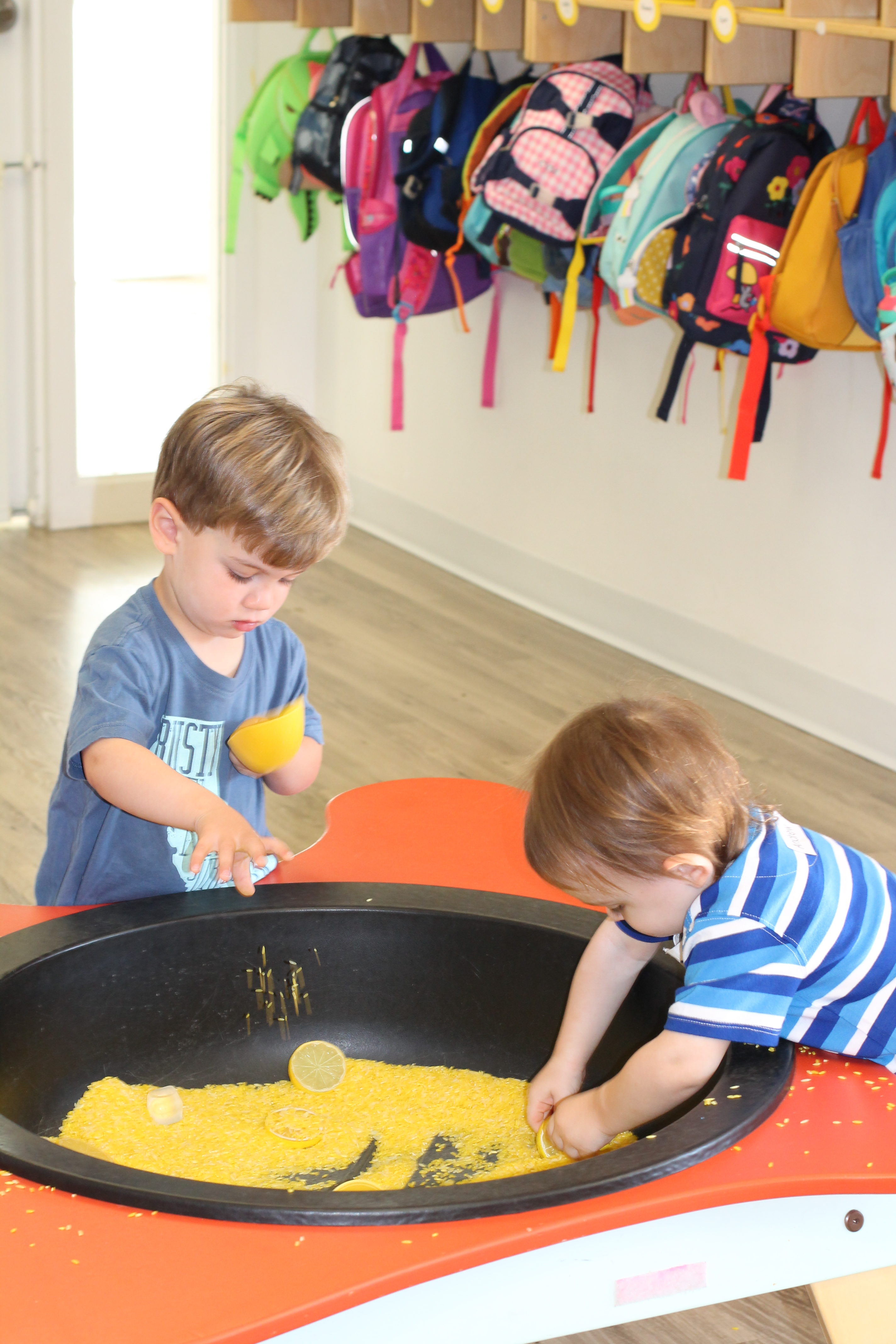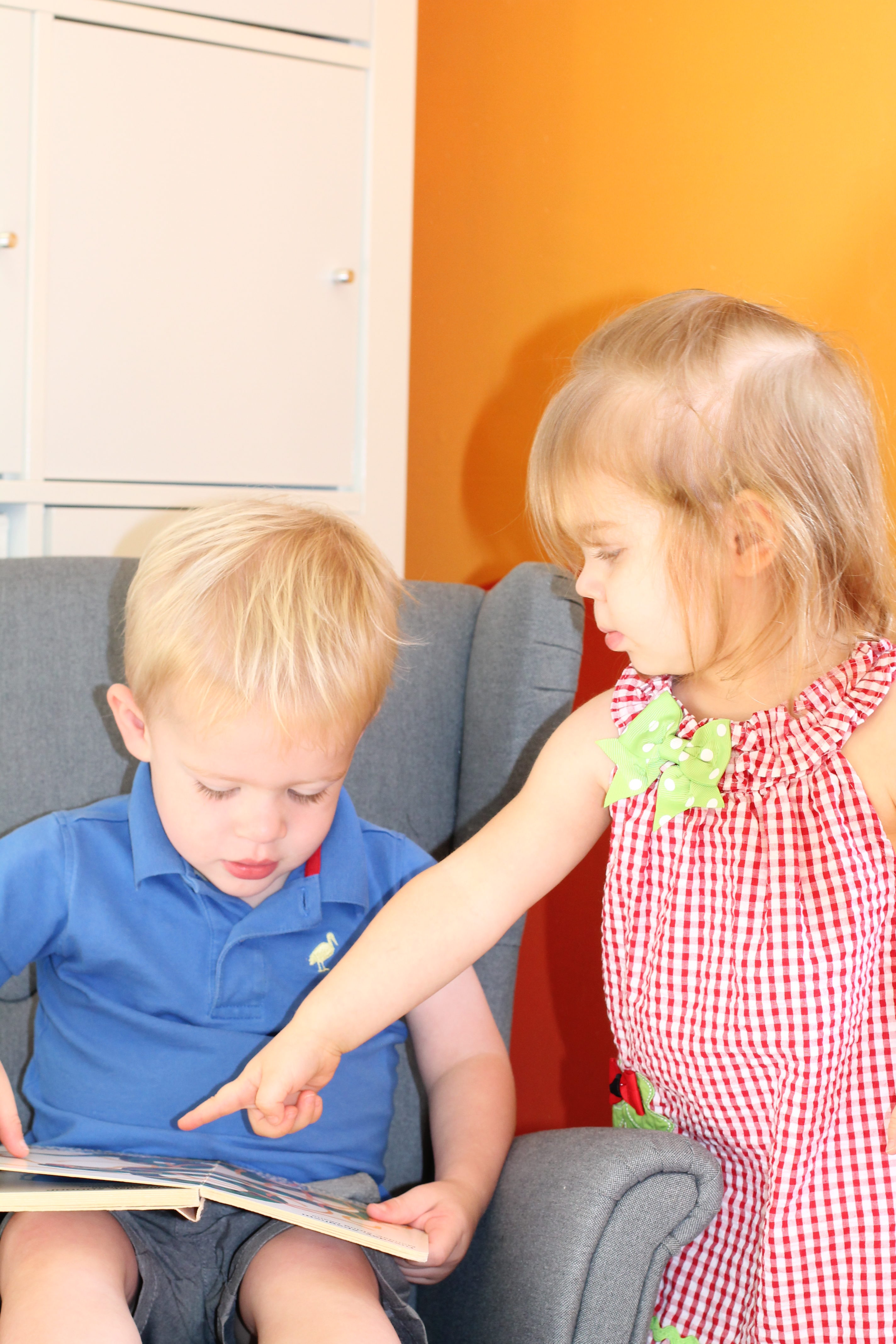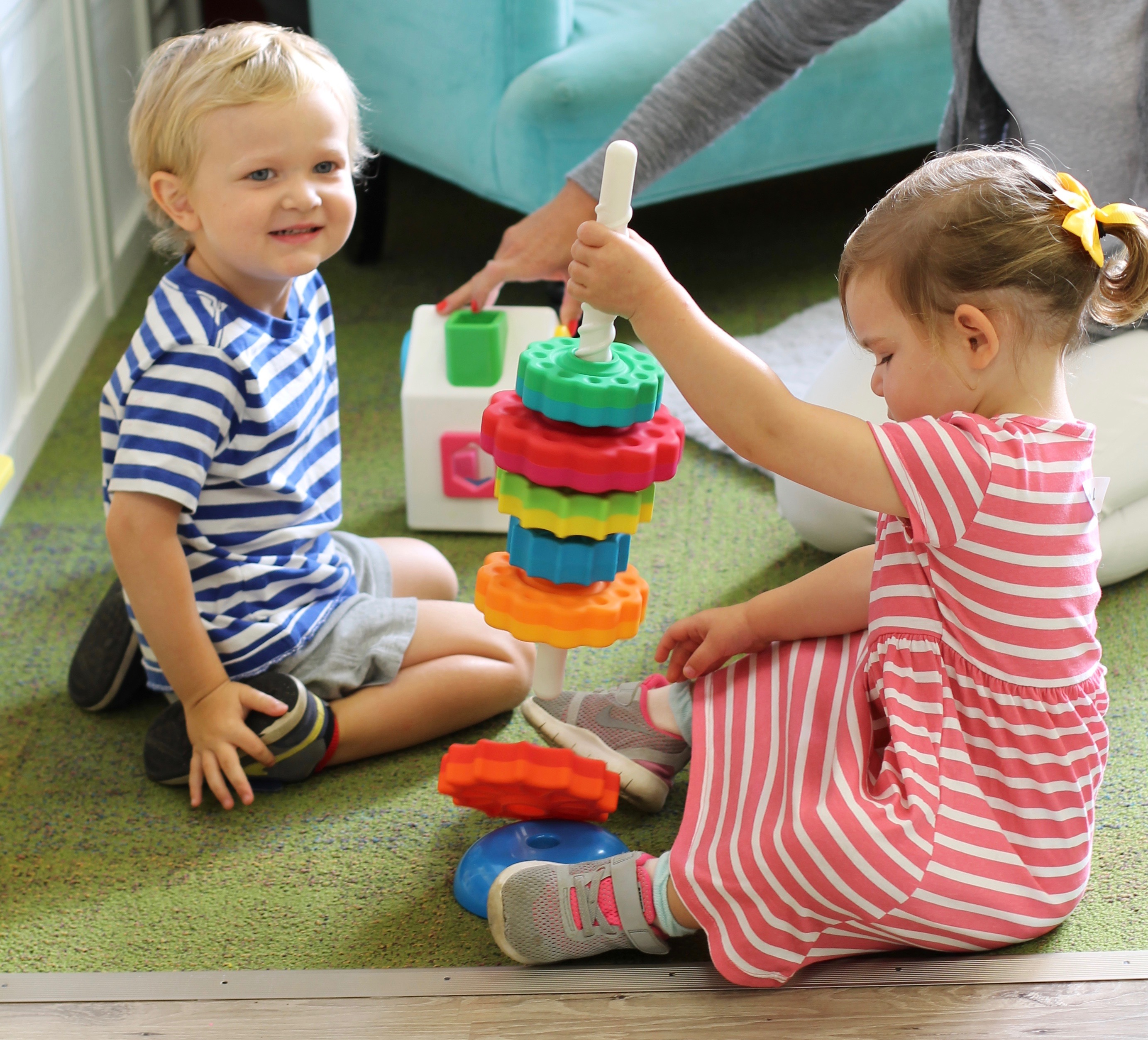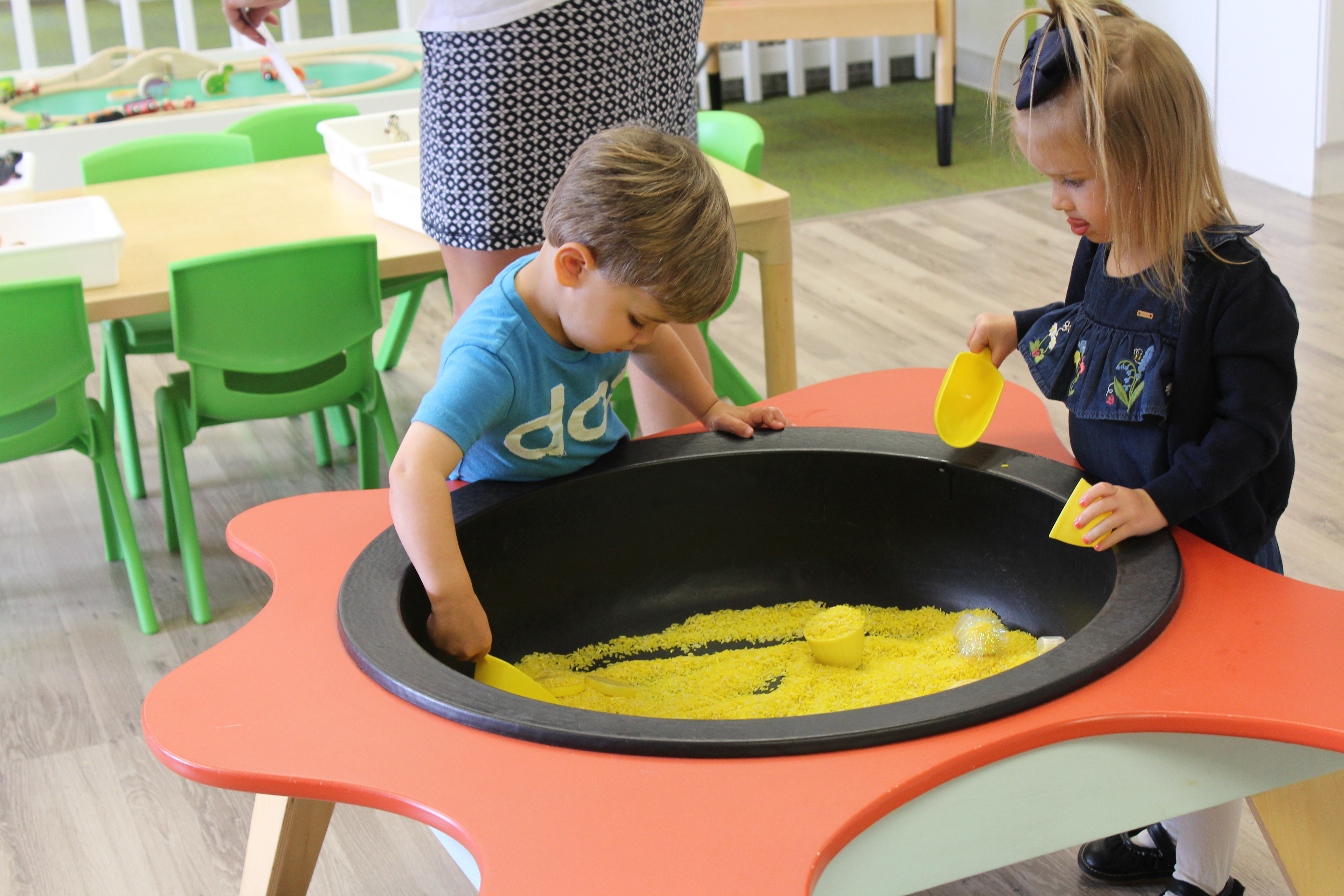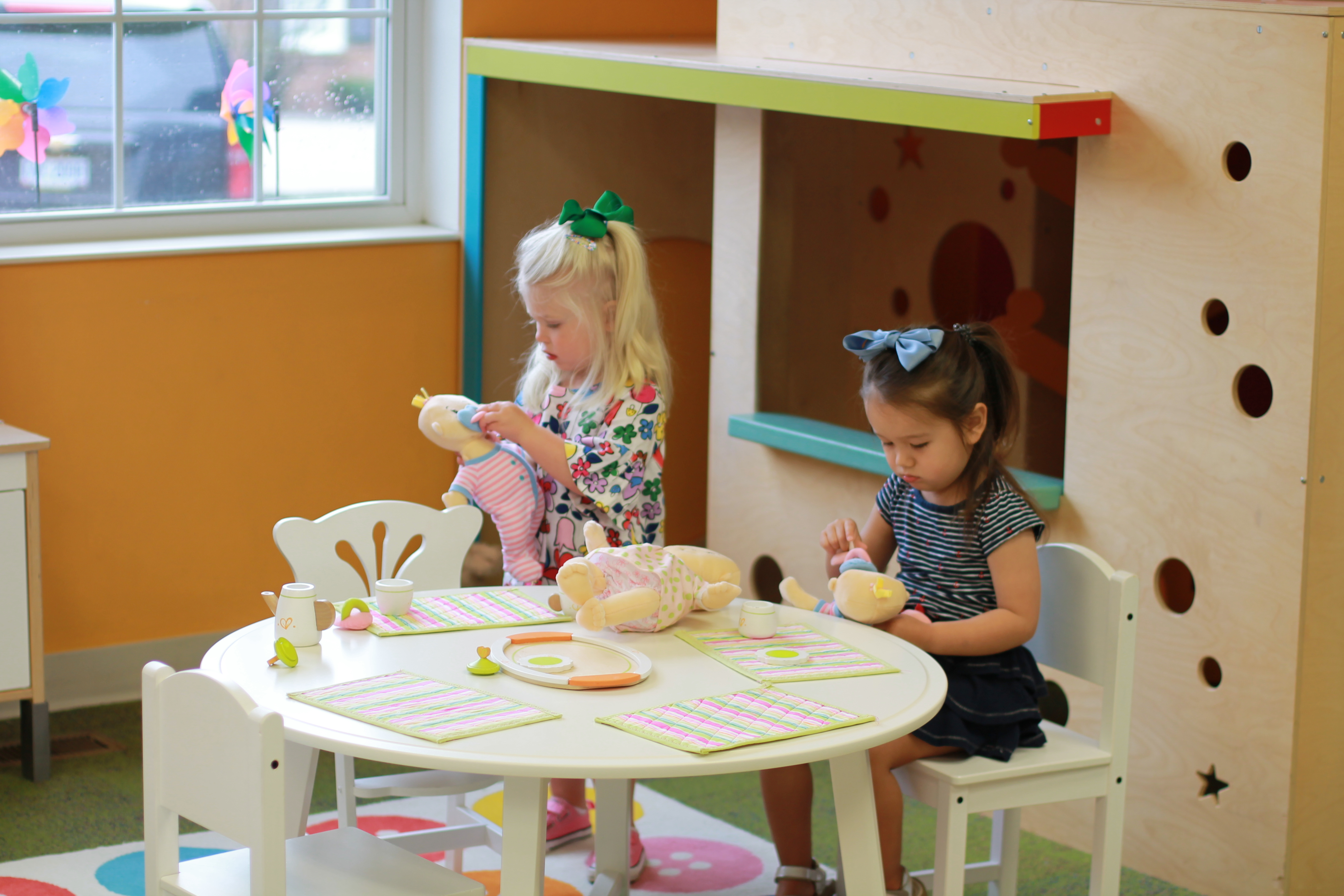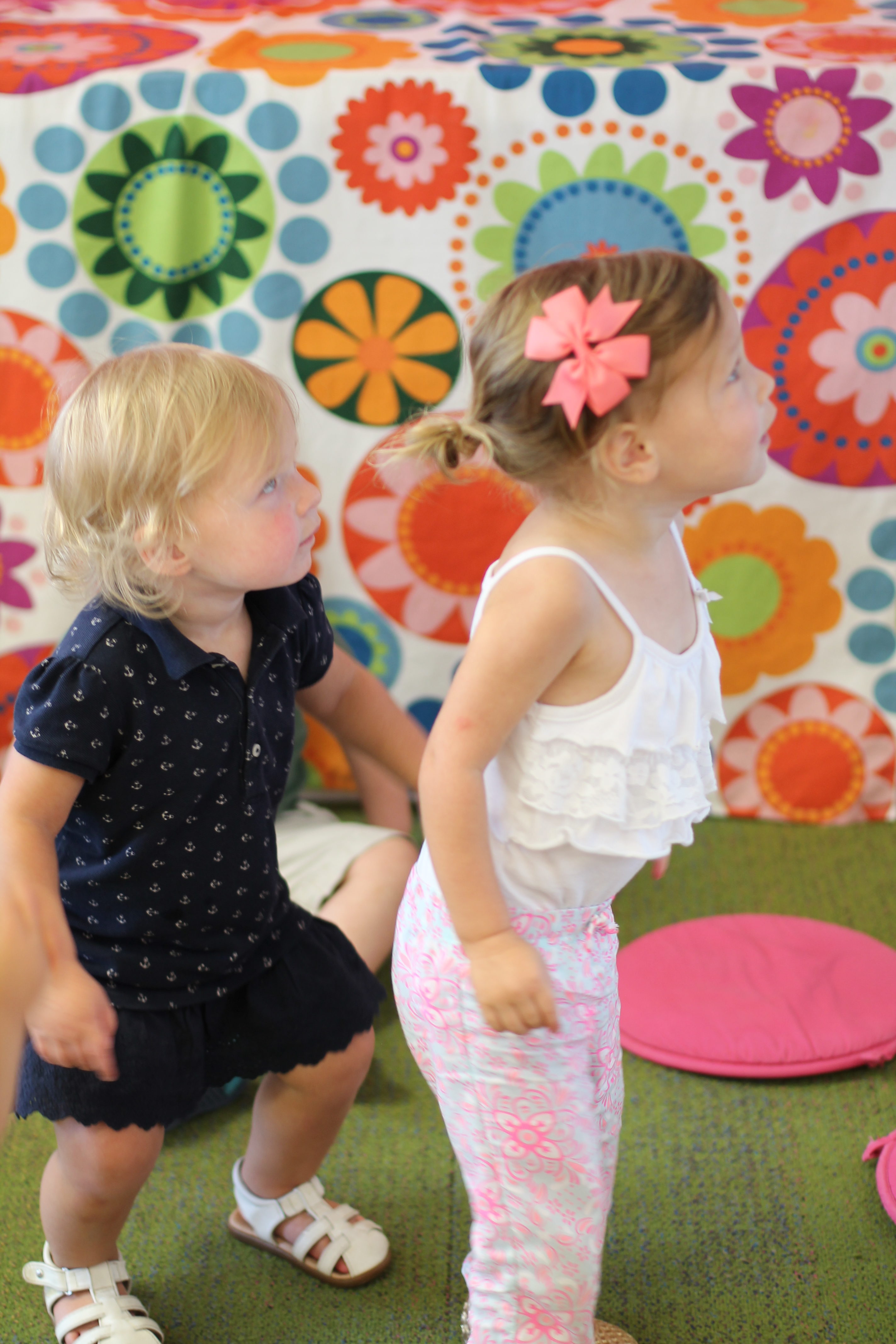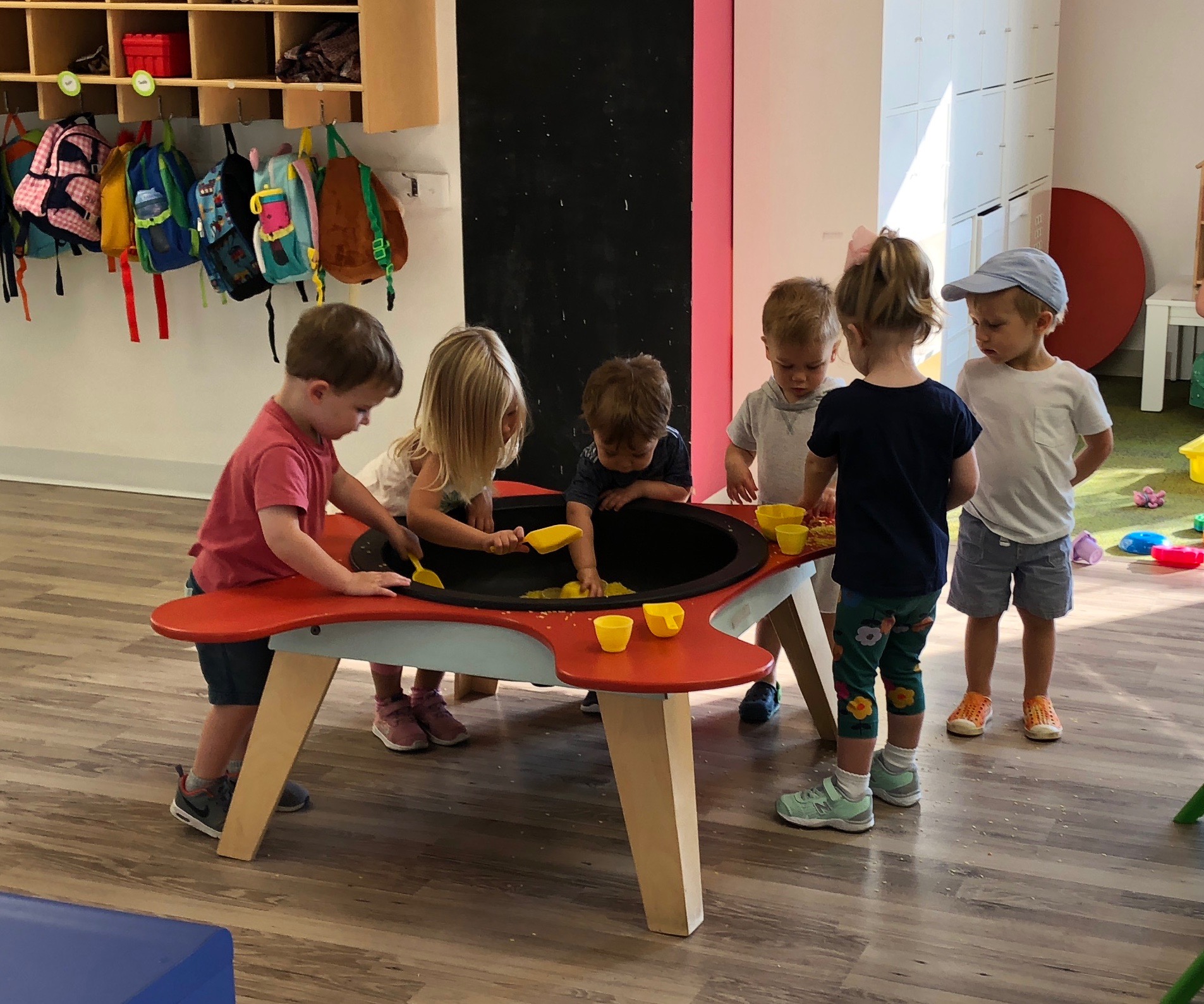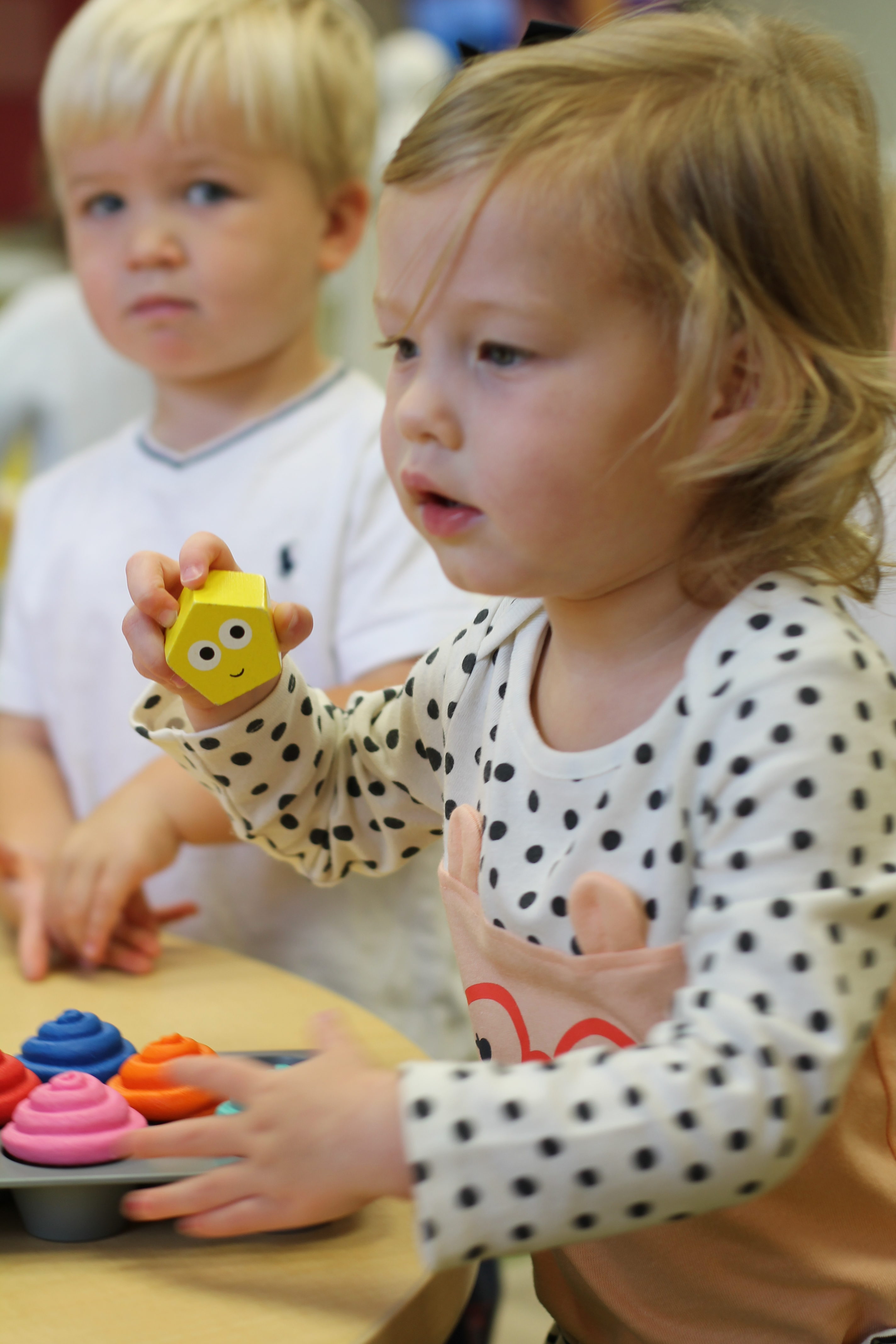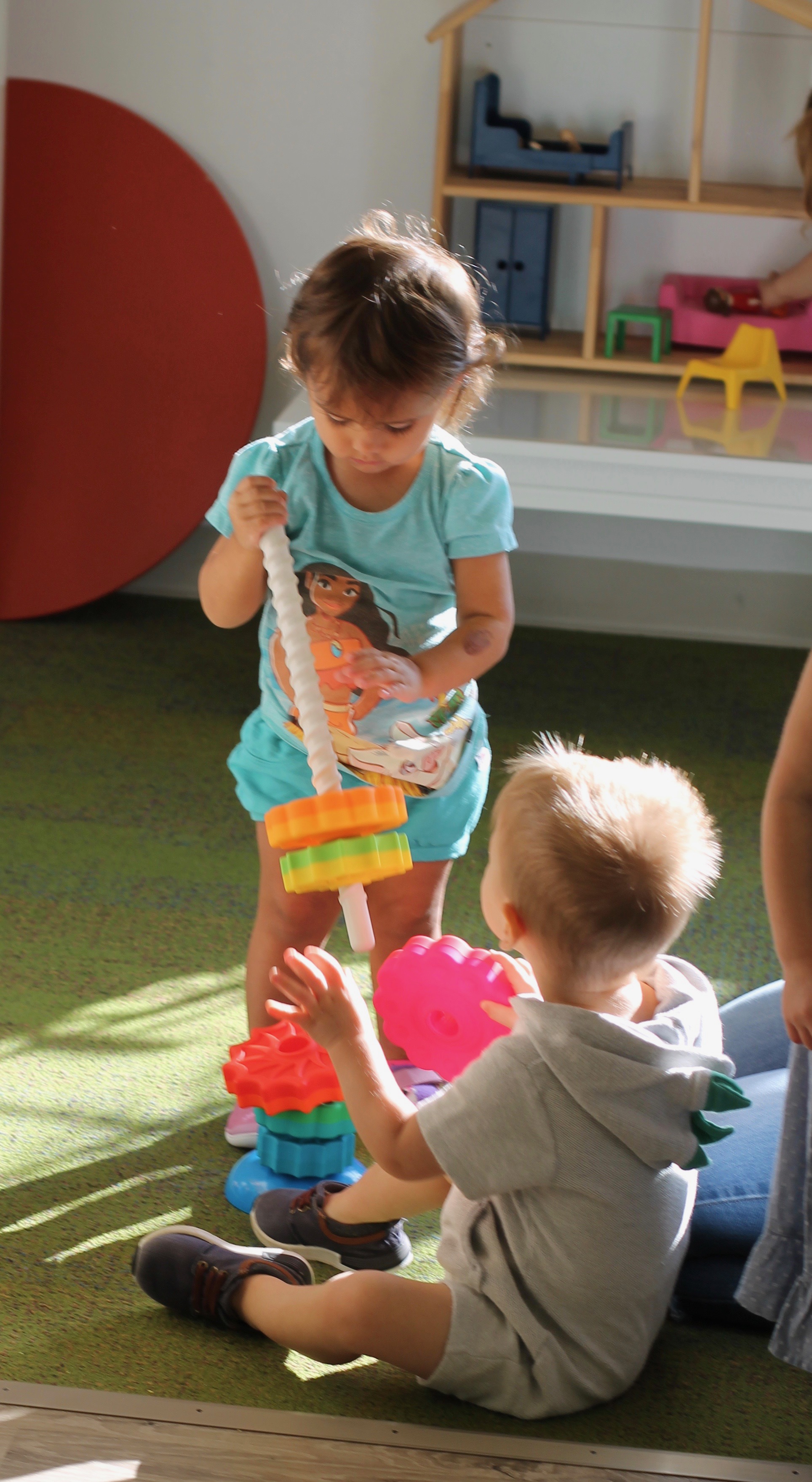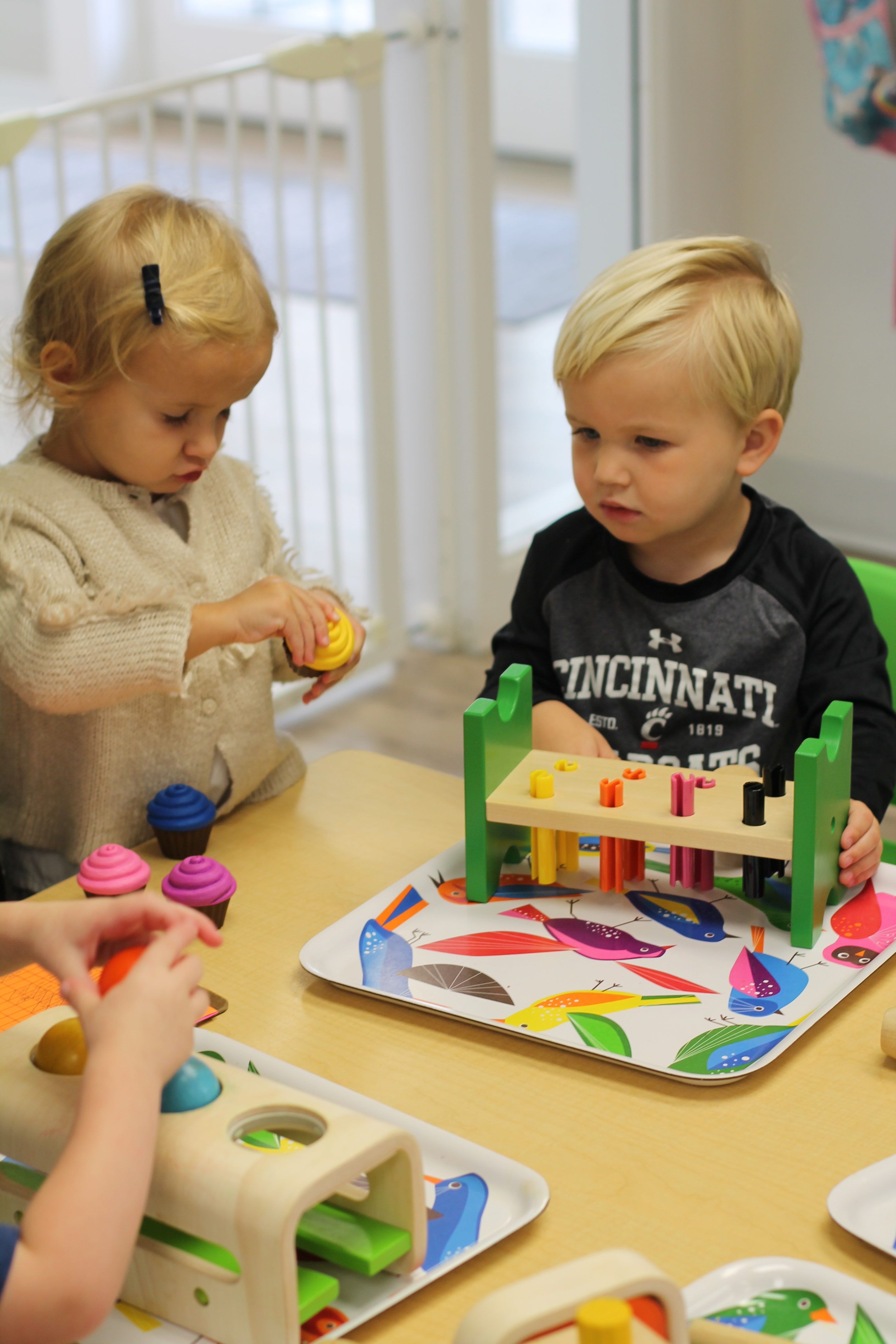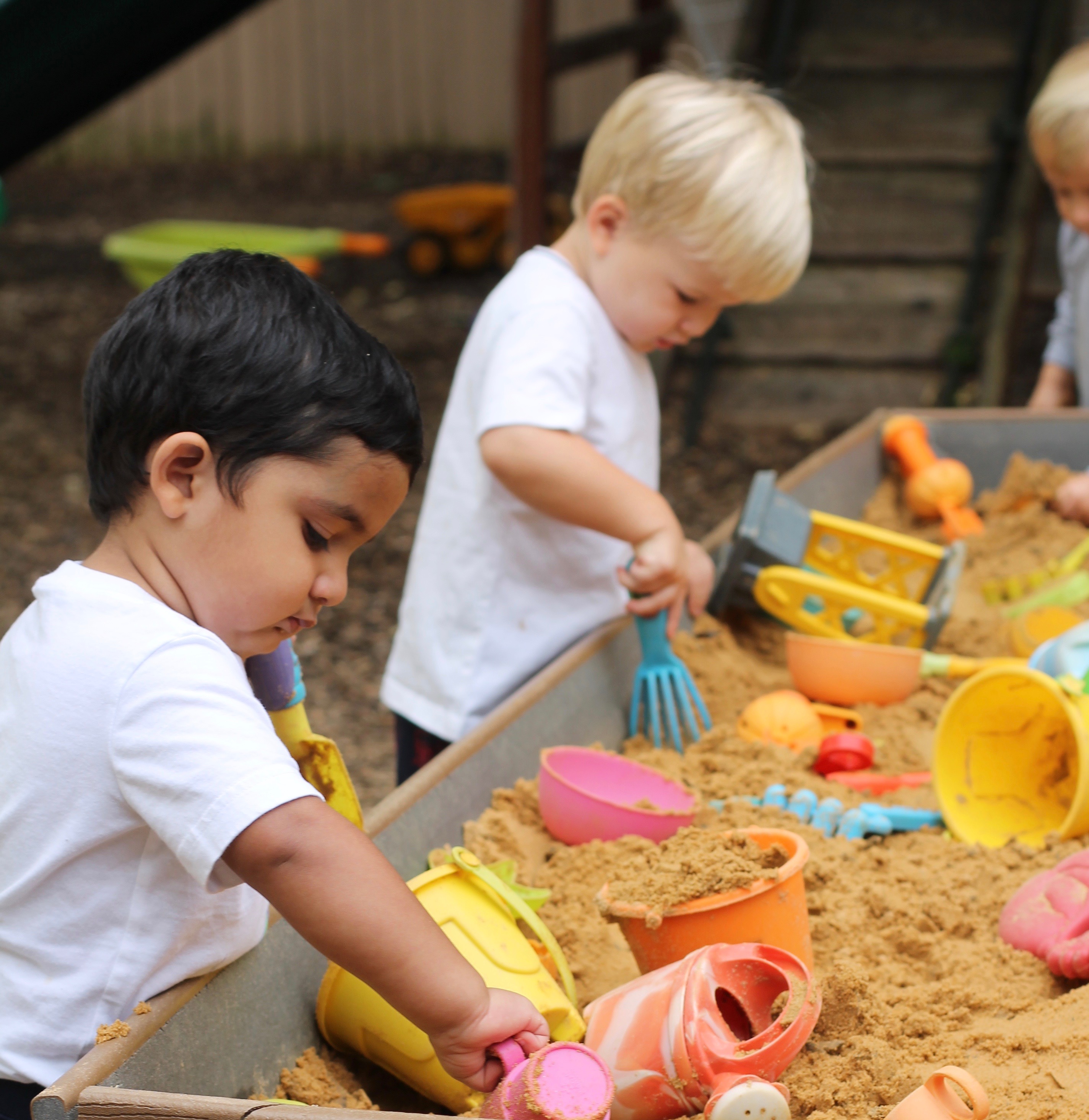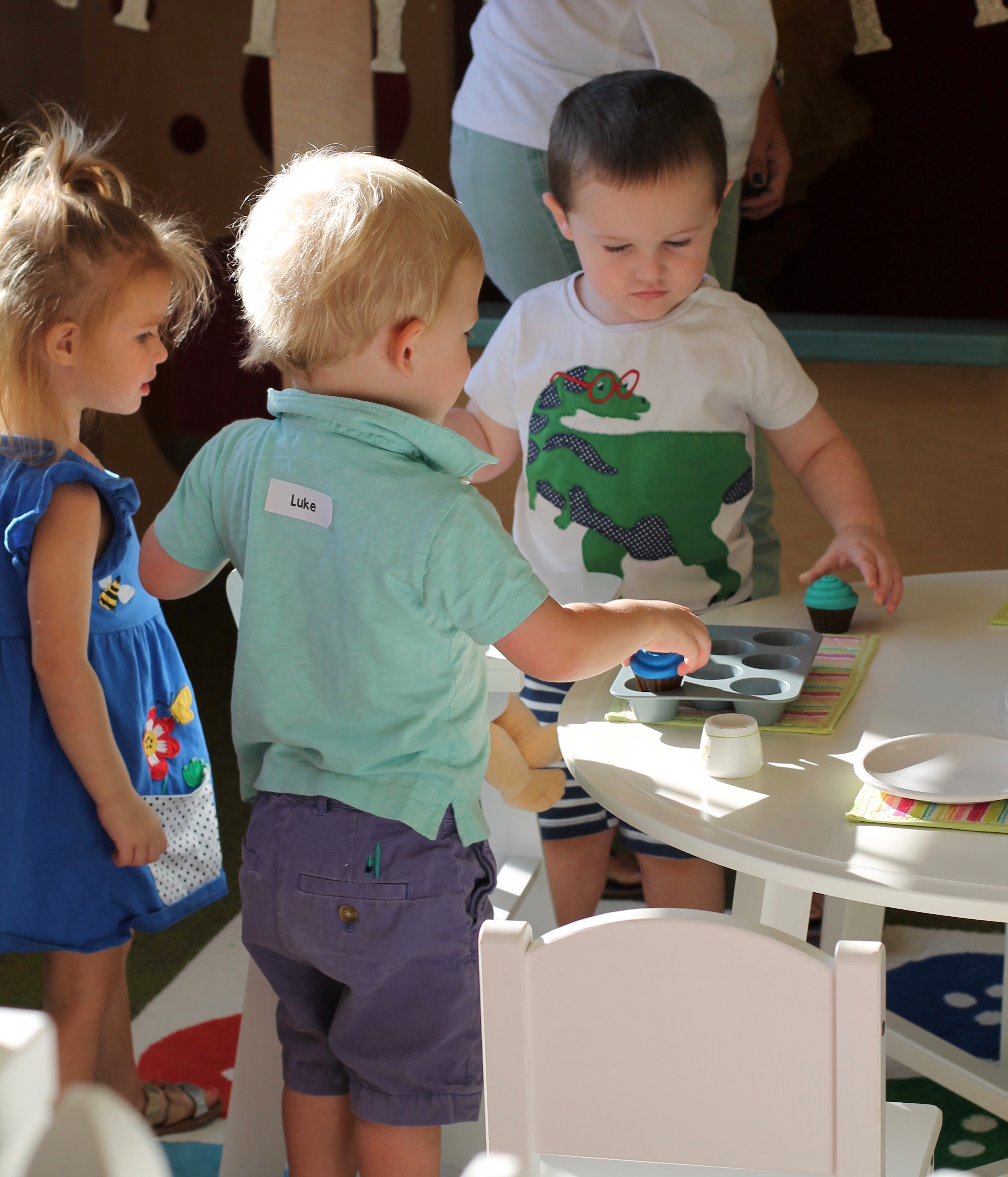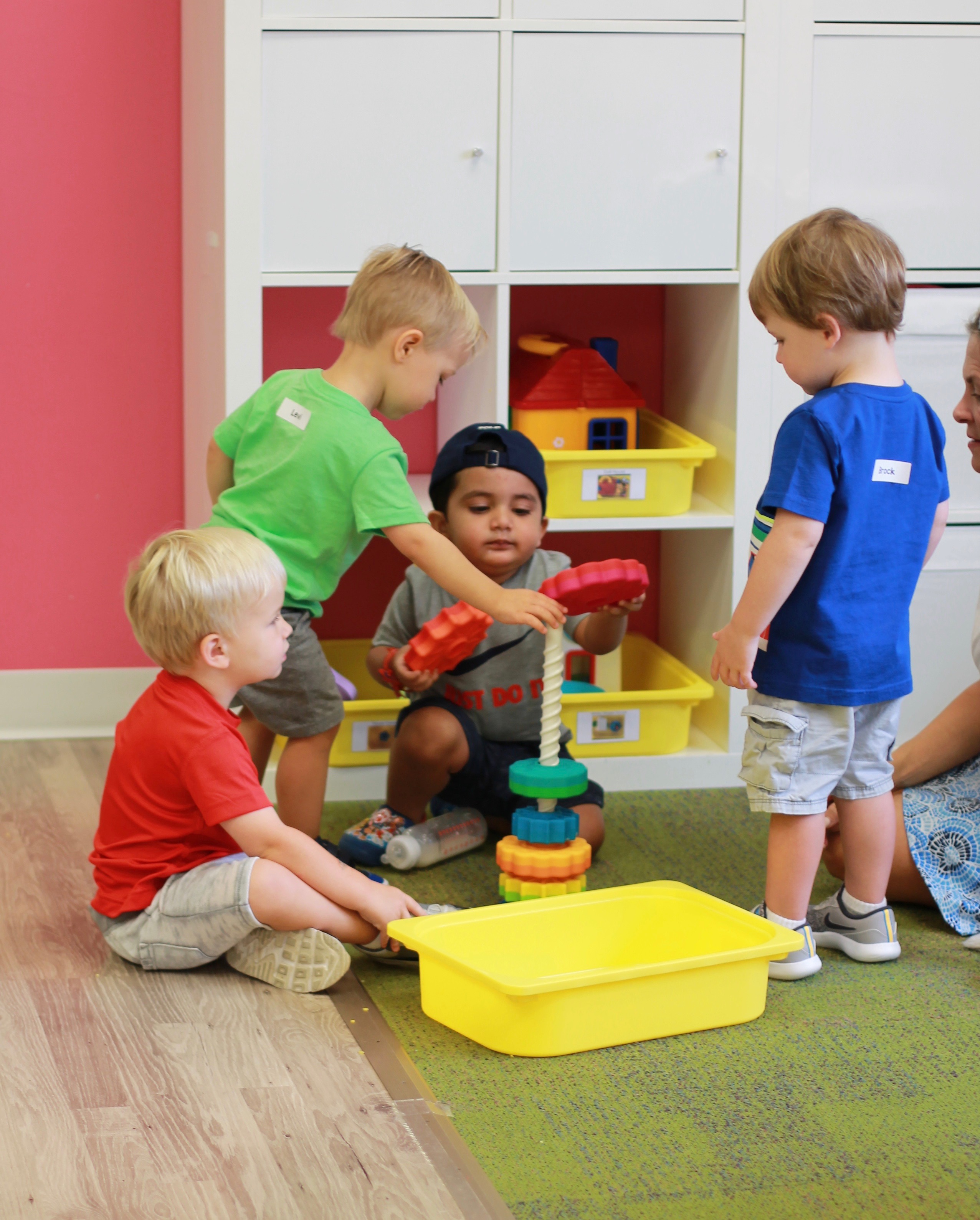At around 18 months, there are notable changes in cognitive skills that help real friendships blossom. Toddlers become more consciously aware of herself and others. This stronger sense of self also helps the toddler become more aware of how other people feel. An emerging understanding of cause and effect helps the toddler to know that grabbing her friend’s shovel will make him cry. An equally new understanding of order and sequence gives the senior toddler the tools to begin to take turns.
These emerging thinking skills are embedded in the emotional life of the toddler who often struggles with urgent and sometimes volatile feelings. For instance, the 2-year-old’s strong push toward independence and autonomy might take the form of grabbing her friend’s shovel even though she knows her teacher won’t approve – and her friend will cry. The child’s need for feelings of control or power become focused on possessing that particular shovel, no matter what! How we intervene can make a difference in how the child learns to navigate the give and take of friendship. Give him/her the language so that she/he can label and express their needs. “You really want that shovel, but Nicholas is using it now. You can use it when he is finished. It is so hard to wait for something you really want.” Empathize with the toddler while you set clear social rules. You can offer an alternative toy but refrain from quickly distracting her. Give her a moment to think about how she is feeling and adapt to the demands that come with learning how to play with other children. Sometimes 2-year-olds who are having a conflict can work things out themselves, so wait that extra moment before moving in.
Developing friendships depends on the toddler’s growing ability to regulate or control herself. A friendship between two toddlers can be very intimate and meaningful, especially when they are together each day.
source: Ages and Stages: How Children Build Friendships
